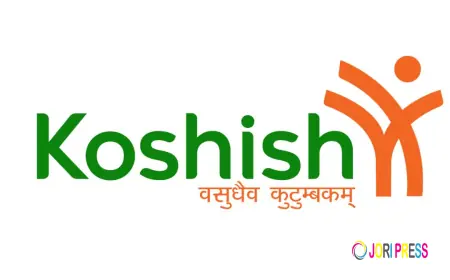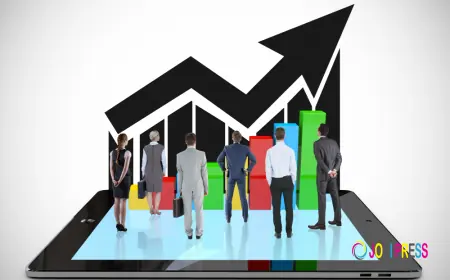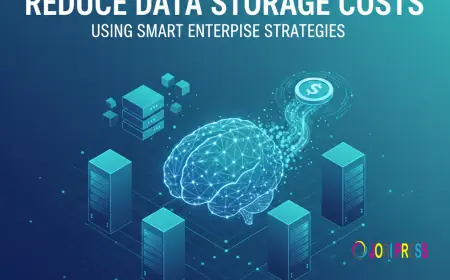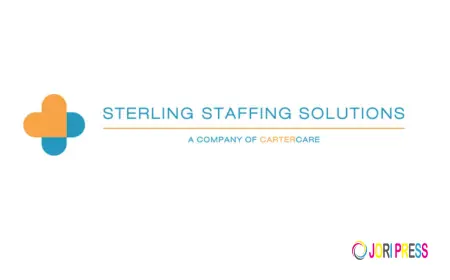Smart Contracts in 2025: Building Trust in a Trustless Digital Economy
Explore how smart contracts in 2025 are revolutionizing the digital economy by building trust in trustless environments. Learn how smart contract development companies and services automate business processes, enhance security, and integrate AI for predictive and efficient blockchain solutions.
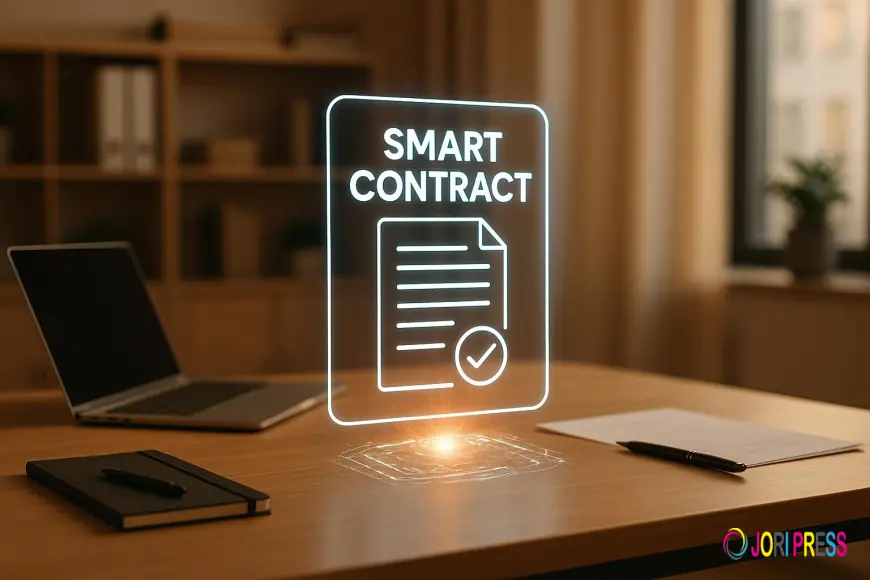
The digital economy of 2025 is characterized by decentralization, real-time automation, and increased reliance on blockchain technologies. Smart contracts have emerged as a cornerstone of this evolving ecosystem, enabling trustless interactions across industries. These self-executing contracts, underpinned by code and blockchain infrastructure, reduce the need for intermediaries while ensuring transparency, accuracy, and security. For startups and businesses exploring blockchain solutions, partnering with a smart contract development company or leveraging professional smart contract development services is crucial to deploying reliable and scalable applications.
As blockchain adoption accelerates, smart contracts are increasingly integrated into sectors such as finance, supply chain, insurance, gaming, and healthcare. They allow organizations to automate complex workflows, enforce agreements programmatically, and minimize the risk of human error. In the context of decentralized finance (DeFi), real estate tokenization, or cross-border trade, smart contracts facilitate instantaneous, immutable, and auditable transactions. This automation not only increases efficiency but also fosters trust in an otherwise trustless network.
The Evolution of Smart Contracts
Since their inception with Ethereum, smart contracts have evolved from simple transactional scripts to highly sophisticated, autonomous programs capable of handling intricate logic. Ethereum pioneered the concept of decentralized applications (dApps) with its Turing-complete language, Solidity, enabling developers to create complex protocols. By 2025, smart contracts are no longer limited to a single blockchain ecosystem. Multi-chain architectures and layer-2 solutions allow businesses to reduce gas fees, scale their operations, and interact seamlessly across different networks.
Additionally, advancements in zero-knowledge proofs and privacy-preserving protocols have introduced a new era of confidential smart contracts. These innovations allow parties to validate transactions without exposing sensitive data, opening doors for applications in healthcare, finance, and corporate governance.
Applications Across Industries
Finance and DeFi
In finance, smart contracts have revolutionized lending, borrowing, and asset management. Automated protocols ensure that collateral is managed accurately, interest is calculated transparently, and repayments are executed on schedule. AI integration has enhanced these contracts, enabling predictive models to assess risk, optimize yields, and execute trades autonomously. For businesses seeking to leverage smart contract development services, this represents a major opportunity to deploy DeFi solutions that are both secure and scalable.
Supply Chain and Logistics
Supply chain management benefits greatly from smart contract automation. Contracts can automatically track goods, verify delivery conditions, and trigger payments when predefined criteria are met. This level of automation reduces disputes, ensures compliance, and enhances transparency for all stakeholders. Companies partnering with a smart contract development company can design bespoke systems that integrate IoT devices and blockchain ledgers to monitor real-time conditions, ensuring accountability across the supply chain.
Insurance and Risk Management
Programmable insurance contracts have emerged as a key innovation. Policies can execute automatically based on predefined events, such as weather conditions or shipping delays, eliminating lengthy claims processes. AI-enhanced smart contracts assess risk in real time, calculate payouts, and even flag anomalies for human review. Such capabilities are crucial for financial institutions and insure-tech startups aiming to deliver efficient, automated services while remaining compliant with regulatory frameworks.
Real Estate and Tokenized Assets
Real estate transactions are traditionally slow and intermediated by multiple parties. Smart contracts streamline this process by enabling instant tokenized property transfers, automatic rental payments, and transparent ownership records. Fractional ownership is facilitated through blockchain, allowing multiple investors to participate in high-value properties seamlessly. Partnering with a smart contract development company ensures that these complex contracts are both legally sound and technically robust.
Gaming and Digital Collectibles
The gaming sector has witnessed a surge in play-to-earn models, where in-game assets and rewards are tokenized. Smart contracts govern asset ownership, in-game transactions, and marketplaces, ensuring fairness and traceability. Dynamic NFT marketplaces utilize adaptive contracts that respond to user behavior, enabling new monetization models and interactive experiences. Businesses seeking smart contract development services in gaming can create scalable, secure ecosystems for players worldwide.
Technical Considerations for 2025
Security and Audits
As smart contracts grow in complexity, security remains paramount. Vulnerabilities in code can lead to significant financial losses. AI-powered audit tools now analyze contract logic in real time, detecting potential exploits before deployment. Organizations should engage professional smart contract development services to ensure thorough testing, formal verification, and continuous monitoring of deployed contracts.
Interoperability and Composability
Modern smart contracts must interact seamlessly across multiple blockchains and protocols. Composability allows contracts to be reused, integrated, and combined into larger systems. This modularity accelerates development, reduces costs, and fosters innovation, particularly in multi-chain DeFi ecosystems. Businesses partnering with experienced smart contract development companies can leverage these features to build versatile, future-proof applications.
Regulatory Compliance
With global attention on digital assets, regulatory compliance is critical. AI-enhanced smart contracts can automatically enforce compliance rules, report transactions, and adapt to changing legislation. This functionality ensures that decentralized solutions remain aligned with legal frameworks, building confidence for enterprises and investors alike.
User Experience and Gas Optimization
Layer-2 solutions and gasless transactions are transforming the user experience. By reducing transaction costs and latency, these innovations make blockchain applications more accessible to end-users. Smart contract developers must design efficient, optimized code to enhance usability while maintaining security and transparency.
The Future of Smart Contracts
By 2025, smart contracts will not only execute predefined logic but also adapt, learn, and interact intelligently with AI-driven systems. Predictive contracts will anticipate market conditions, autonomous contracts will manage dynamic risk, and cross-chain contracts will enable seamless global operations. This evolution positions smart contracts as the backbone of a truly decentralized, automated, and trustless digital economy.
Enterprises and startups looking to harness these capabilities must collaborate with a smart contract development company that offers end-to-end services—from design and testing to deployment and ongoing maintenance. Leveraging professional smart contract development services ensures robust architecture, compliance, and scalability, allowing businesses to innovate confidently in an increasingly decentralized landscape.
Conclusion
Smart contracts in 2025 are more than just digital agreements; they are autonomous agents driving transparency, efficiency, and trust in a trustless digital economy. From finance to supply chains, insurance to real estate, and gaming to ESG initiatives, these programmable contracts are transforming industries by automating complex processes, reducing reliance on intermediaries, and enhancing security. Partnering with a competent smart contract development company and utilizing professional smart contract development services is essential for businesses seeking to implement reliable, scalable, and future-ready solutions. As blockchain technology matures, smart contracts will continue to redefine how trust is established, managed, and executed in the digital world.
1. What are smart contracts and how do they work in 2025?
Smart contracts are self-executing agreements written in code on a blockchain. By 2025, they incorporate advanced features like AI integration, cross-chain interoperability, and automated compliance, enabling complex business processes to execute trustlessly and efficiently without intermediaries.
2. How can a smart contract development company help businesses implement blockchain solutions?
A professional smart contract development company designs, audits, and deploys secure, scalable contracts. They ensure compliance with regulations, optimize code for efficiency, and integrate AI-driven automation, helping startups and enterprises implement blockchain solutions with confidence.
3. What industries benefit most from smart contract adoption?
Finance, supply chain, insurance, real estate, gaming, and ESG-focused businesses benefit significantly. Smart contracts automate payments, track assets, ensure transparency, and reduce operational risks across these sectors.
4. How do AI and predictive analytics enhance smart contracts?
AI allows smart contracts to anticipate events, manage dynamic risks, optimize yields, and automate decision-making. Predictive analytics help businesses react to market conditions in real-time, improving operational efficiency and reducing fraud.
5. Are smart contracts secure, and how can vulnerabilities be prevented?
While smart contracts are inherently secure due to blockchain immutability, coding errors can pose risks. Engaging professional smart contract development services ensures proper testing, AI-powered audits, and formal verification, minimizing vulnerabilities and enhancing security.
What's Your Reaction?
 Like
0
Like
0
 Dislike
0
Dislike
0
 Love
0
Love
0
 Funny
0
Funny
0
 Angry
0
Angry
0
 Sad
0
Sad
0
 Wow
0
Wow
0






